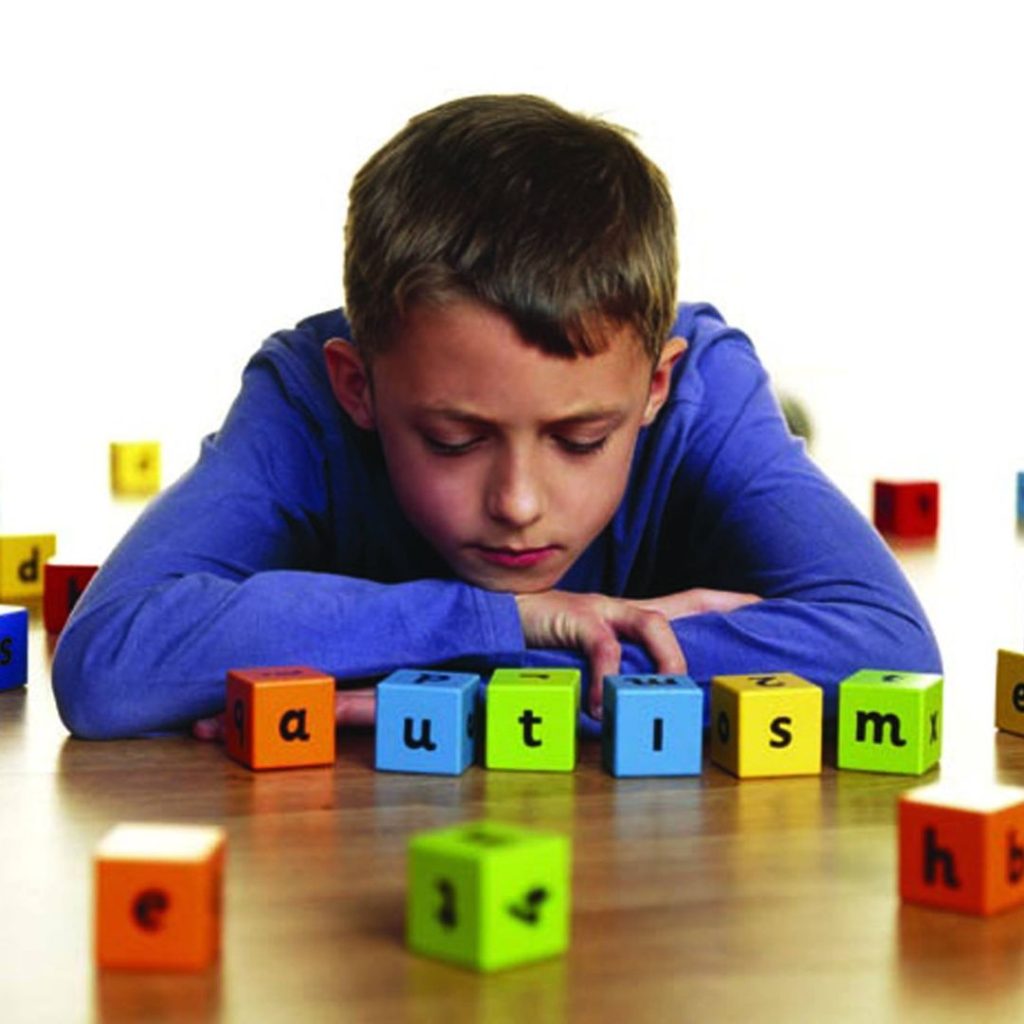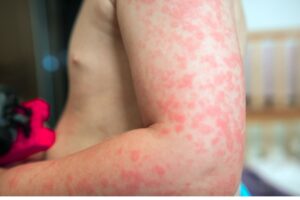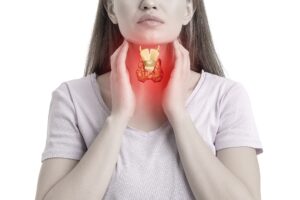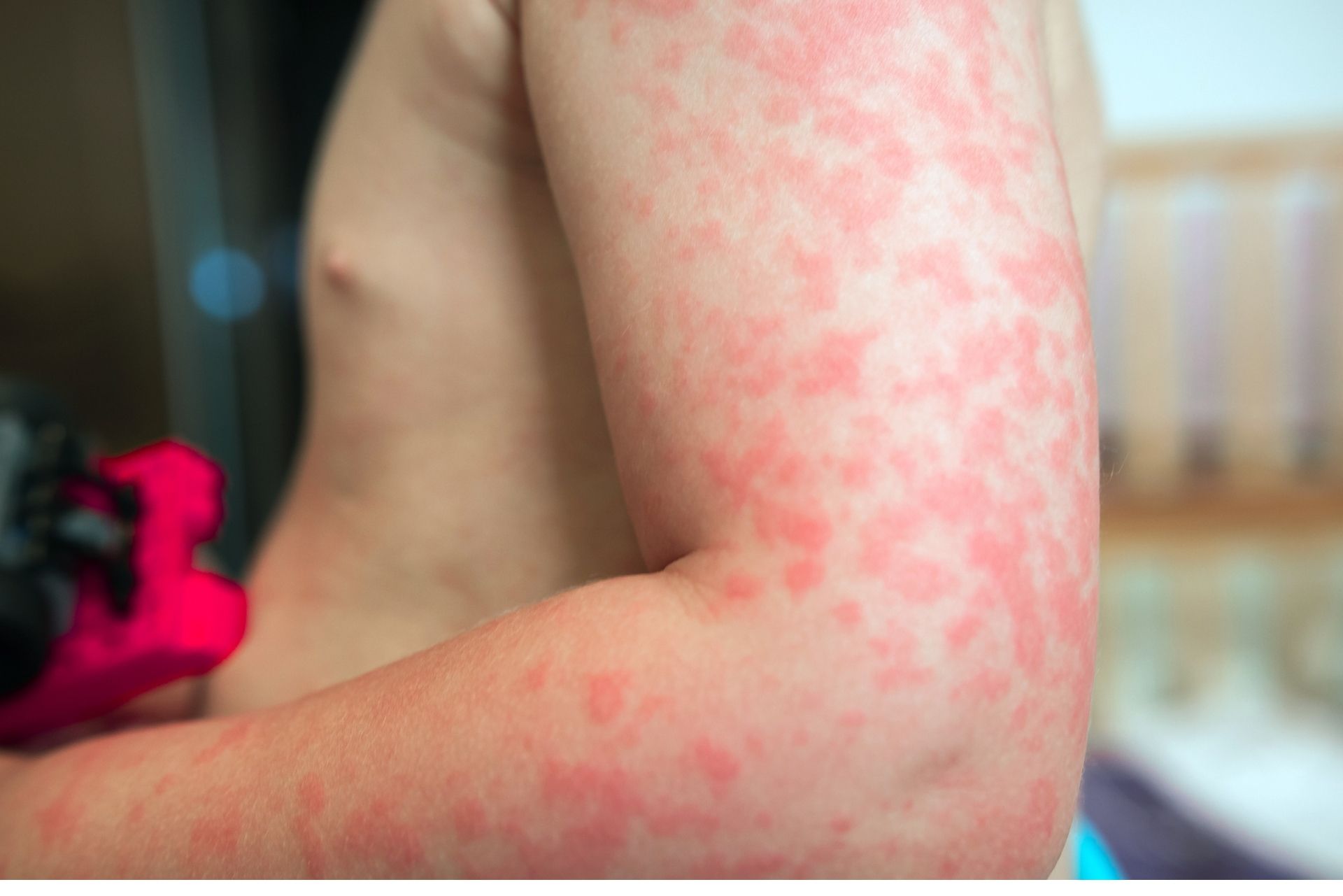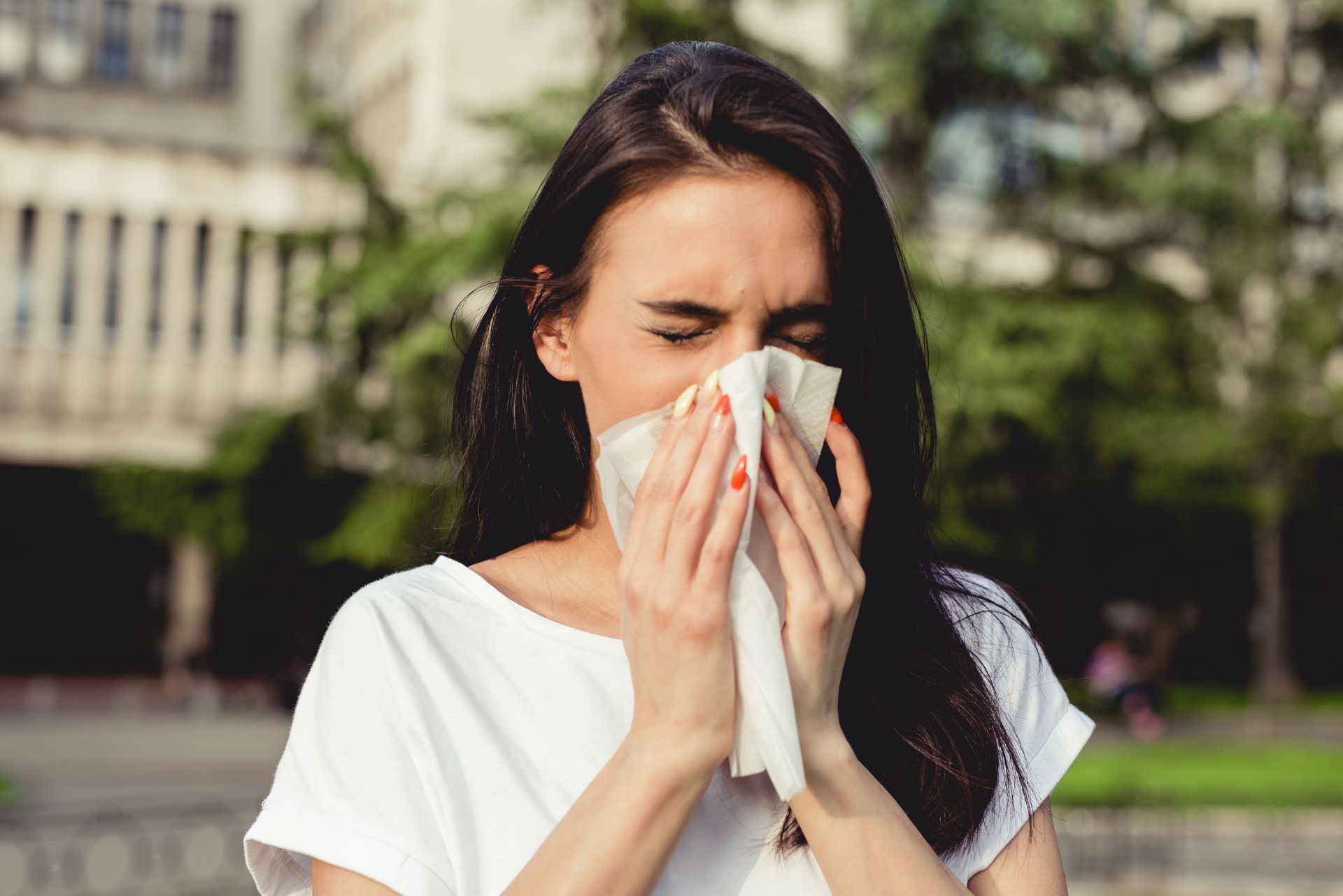Autism is a disorder in which children have impaired or poor communication and social skills. It usually becomes apparent within first three years of life but some mild cases get diagnosed during early schooling. Autism is a disorder of neural development characterized by impaired social interaction and verbal and non-verbal communication, and by restricted or repetitive behaviour.
But many parents feel that their kids start showing autistic traits suddenly after a period of normal development. What is Autism Spectrum Disorder (ASD)? Index The autism spectrum disorder describes a range of conditions classified as pervasive developmental. ASD includes autism, Asperger syndrome, pervasive developmental disorder not otherwise specified (PDD-NOS]. These disorders are characterized by social deficits, communication difficulties, stereotyped or repetitive behaviours and interests, and in some cases, cognitive delays. What are the signs and symptoms of Autism? Autism (or ASD) is a wide-spectrum disorder and children with autism often vary in the severity and range of signs and symptoms. As well as experiencing varying combinations of symptoms, some people will have mild symptoms while others will have severe ones. Onset: Overt symptoms gradually begin after the age of six months, become established by age two or three years and tend to continue through adulthood. Autism is distinguished by a characteristic triad of symptoms: impairments in social interaction; impairments in communication; and restricted interests and repetitive behaviour. Other aspects, such as atypical eating, are also common but are not essential for diagnosis. Here is a detail list of Autism symptoms. Social Skills – signs and symptoms: Very little or no eye contact. Resistance to being held or touched. Tends to get too close when speaking to someone (lack of personal space). Responds to social interactions, but does not initiate them. Does not generally share observations or experiences with others. Difficulty understanding jokes, figures of speech or sarcasm. Difficulty reading facial expressions and body language. Difficulty understanding the rules of conversation. Difficulty understanding group interactions. Seems unable to understand another’s feelings. Prefers to be alone, aloft. Unaware of/disinterested in what is going on around them. Talks excessively about one or two topics. Minimal acknowledgement of others. Language Development – signs and symptoms: Abnormal use of pitch, intonation, rhythm or stress while speaking. Speech is abnormally loud or quiet. Difficulty whispering. Repeats last words or phrases several times. Makes verbal sounds while listening (echolalia). Often uses short, incomplete sentences. Speech started very early and then stopped for a period of time. Difficulty understanding directional terms (front, back, before, after). Behaviour – signs and symptoms: Obsessions with objects, ideas or desires. Ritualistic or compulsive behaviour patterns (sniffing, licking, watching objects fall, flapping arms, spinning, rocking, humming, tapping, sucking, rubbing clothes). Fascination with rotation. Play is often repetitive. Unusual attachment to objects. Perfectionism in certain areas. Inability to perceive potentially dangerous situations. Emotions – signs and symptoms: Sensitivity or lack of sensitivity to sounds, textures (touch), tastes, smells or light. Difficulty with loud or sudden sounds. Resists change in the environment (people, places, objects). Calmed by external stimulation – soothing sound, brushing, rotating object, constant pressure. Learning Development – signs and symptoms Exceptionally high skills in some areas and very low in others. Excellent rote memory in some areas. Difficulty with reading comprehension (can quote an answer, but unable to predict, summarize or find symbolism). Difficulty with fine motor activities (colouring, printing, scissors, gluing). Short attention span for most lessons. Resistance or inability to follow directions. Difficulty transitioning from one activity to another in school. Locomotor Skills – signs and symptoms: Walks on toes. Unusual gait. Difficulty changing from one floor surface to another (carpet to wood, sidewalk to grass). Difficulty moving through a space (bumps into objects or people). Gross motor skills are developmentally behind peers (riding a bike, skating, running). Fine motor skills are developmentally behind peers (hand writing, tying shoes, scissors). When should you get your child evaluated for Autism or ASD? If your child has any of these delays or behaviour, consult your paediatrician asap: No babbling by 9 months No pointing or gestures by 12 months Not responding to their name by 12 months of age No single words by 16 months Lack of pretend play by 18 months No two-word phrases by 24 months Any loss of language or social skills at any age Your infant or child resists cuddling and doesn’t respond to his or her environment or to other people Your child bangs his or her head or demonstrates self-injurious behaviour or aggression on a regular basis Your child demonstrates unusually repetitive behaviour, such as repeatedly opening and closing doors or turning a toy car upside down and repeatedly spinning its wheels How prevalent is Autism? Incidence and Epidemiology of Autism. Autism is approaching the numbers of an epidemic. The figures are staggering—in the 1960s, four in 10,000 children had autism. Today, according to Autism Speaks, an organization dedicated to autism, one in every 110 children is diagnosed with autism. Different studies in different countries have found a prevalence rates between 3/10000 to 40/10000. U.S. government statistics suggest the prevalence rate of autism is increasing 10-17% annually. Boys are nearly five times more likely than girls to have autism. Based on the evidence reviewed in a study published in 2012, the median of prevalence estimates of autism spectrum disorders was 62/10000. USA: Most recent reviews tend to estimate a prevalence of 1–2 per 1,000 for autism and close to 6 per 1,000 for ASD and 11 per 1,000 children in the United States for ASD as of 2008; UK: A 2006 study of nearly 57,000 British nine- and ten-year-olds reported a prevalence of 3.89 per 1,000 for autism and 11.61 per 1,000 for ASD; these higher figures could be associated with broadening diagnostic criteria. Canada: The rate of autism diagnoses in Canada was 1 in 450 in 2003. However, preliminary results of an epidemiological study conducted at Montreal Children’s Hospital in the 2003-2004 school year found a prevalence rate of 0.68% (or 1 per 147). India: It is estimated that there are 20 lakh ( 2 million) individuals in India suffering from Autism/ASD using the extrapolated prevalence figures of 1/250 to 1/500. Why does Autism occur? What causes Autism? The exact cause of autism is still not known. Recent research indicates that it could be a combination of genetic and environmental factors. The environmental factors could be a variety of conditions affecting brain development, which can occur before, during or soon after birth. Is there a role of vaccines in causing Autism? ASD & Vaccine Damage controversy. Over the years, many people have had concerns that autism might be linked to the vaccines children receive. One vaccine ingredient that has been studied specifically is Thimerosal, used as a preservative in many recommended childhood vaccines. MMR vaccine has also been linked with Autism frequently. The main reason people talk about vaccines and autism is that some parents have noticed changes in children shortly after the children were vaccinated. Their kids seemed to be developing normally, then suddenly stopped interacting with people and lost language abilities — a condition called “regressive” autism. The American Academy of Paediatrics, the CDC, the World Health Organization, and the Institute of Medicine all agree that there’s probably no relationship between autism and vaccines. But if the case is that solid, why do so many people remain unconvinced? There are a number of websites giving information about vaccine damage in kids. YouTube also has dozens of testimonial videos from parents who believe their children developed autism after vaccination. Their beliefs may have been validated in March 2008 when federal officials said that a Georgia girl was entitled to compensation because vaccines may have aggravated an underlying condition, causing autism-like symptoms. In 2013, an Italian court also ruled in favour of the Bocca family, whose nine-year-old son became autistic after receiving the MMR vaccine. New evidence suggesting a link between the MMR vaccine and autism have emerged recently. Scientists reported finding a strong association between the vaccine and an immune system reaction which is thought to play a role in autism. The team led by Dr Vijendra Singh analyzed blood samples from 125 autistic children and 92 children who did not have the disorder. In 75 of the autistic children they found antibodies showing there had been an abnormal reaction to the measles component of the measles, mumps and rubella vaccine. Nine out of ten of those children were also positive for antibodies thought to be involved in autism. These antibodies attack the brain by targeting the basic building blocks of myelin, the insulating sheath that covers nerve fibres. This stops the nerves developing properly and may affect brain functions. None of the non-autistic children showed the unusual anti-measles response. Dr Singh has suggested that an abnormal immune response may be the root cause of many cases of autism. Dr Singh’s team, who worked at Utah State University in the U.S., report their findings in the latest issue of the Journal of Biomedical Science. In June 2013, scientists and physicians from Wake Forest University, New York, and Venezuela, reported findings that not only confirm the presence of intestinal disease in children with autism and intestinal symptoms, but also indicate that this disease may be novel. Using sophisticated laboratory methods Dr. Steve Walker and his colleagues endorsed Wakefield’s original findings by showing molecular changes in the children’s intestinal tissues that were highly distinctive and clearly abnormal. Another new study shows a direct link between standard childhood vaccination series, MMR, and autism-like symptoms in monkeys. The principal scientist involved in the study, Dr. Laura Hewitson of the University of Pittsburgh, presented the alarming conclusions as an abstract pending publication at the International Meeting for Autism Research. It has been presented at scientific conferences in both London and Seattle, USA. The study compared vaccinated macaque monkeys with non-vaccinated macaques. The vaccines included the popular MMR series. The study found a marked increase in “gastrointestinal tissue gene expression” and “inflammation issues” with those monkeys which received vaccinations. They are a common symptom of children with regressive autism. The study also found marked behaviour changes and development differences in those monkeys given the vaccines versus those who were not. “Compared with unexposed animals, significant neuro-developmental deficits were evident for exposed animals in survival reflexes, tests of color discrimination and reversal, and learning sets,” the study`s authors reported. “Differences in behaviours were observed between exposed and unexposed animals and within the exposed group before and after MMR vaccination.” Despite these recent research studies, the scientific community remains divided about vaccine-autism relation. As informed parents, you need to make your own choice. What treatment can Homeopathy offer for Autistic Children? “Homeopathy is the latest and refined method of treating patients economically and nonviolently. Government must encourage and patronize it in our country.
Late Dr. Hahnemann was a man of superior intellectual power and means of saving human life, having a unique medical nerve. I bow before his skill and the Herculean and humanitarian labour he did. His memory wakes us again and you are to follow him, but the opponents hate the existence of the principles and practice of homeopathy, which in reality cures a larger percentage of cases than any other method of treatment, and it is beyond all doubt safer and more economical and the most complete medical science.” – Mahatma Gandhi Homeopathy is one of the most popular alternative systems of medicine. Despite some controversy regarding its mode of action, the anecdotal evidence for Homeopathy is so strong that it is recognized by dozens of National governments as effective medical modality. There are tens of millions of patients across the world using homeopathy. Despite the negative comments at Wikipedia Homeopathy page, which has been sabotaged by skeptics, there are increasing number of clinical and laboratory studies, not just on humans, but also on animals and plants, which have demonstrated the effectiveness of potentised homeopathic remedies. Homeopathic medicine is one of the most popular alternative systems used for Autism treatment. There are several books and websites dedicated to providing information about homeopathic treatment of Autism. YouTube also has many videos from parents giving positive testimonials of homeopathic treatment for their children. Homeopathy is a safe and gentle system of healing, which tries to identify the root cause of any problem by taking a detail case history, which includes the current complaints of the patient, his/he past medical history, family history, nature and disposition of the patient and many other finer factors. Homeopathy is practiced in two forms – classical and complex. In classical homeopathy, the homeopathic doctor takes a detail case history, tries to identify the root or exciting cause of an illness, and prescribed a single homeopathic remedy at a time to the patient. In complex homeopathy many medicines for a given condition are mixed in a bottle and given at a time. Classical Homeopathy is the pure form of homeopathy and offers deep and lasting cures. When you consult a classical homeopath, he will note the full case history of your child. This will include your child’s current medical complaints, their onset, modalities, past medical history, mother’s history during pregnancy, family history, exploration of any stress points or causes for current illness, and a detail assessment of your child’s mental and emotional makeup. After this exhaustive case history and analysis, the homeopath identifies a homeopathic medicine that covers your child’s symptoms and condition the best. Such a remedy, when well selected, can bring significant changes in many difficult and inveterate cases. Does diet and nutrition play any role in Autism? Many therapists recommend large dose supplements of Vitamin B, Vitamin C, Zinc and Fish oil. Casein free and Gluten free diets have also been suggested by many. Please consult your physician before making any dietary Wishing you a speedy recovery,


